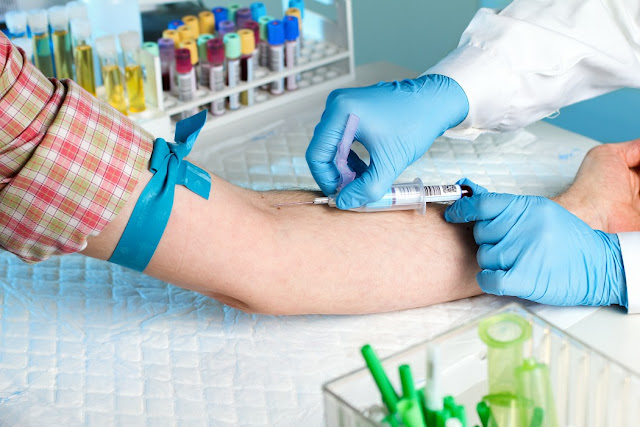The Invisible Bruise: Why We Need to Talk About Hemophilia and Mental Health
We often talk about
hemophilia in terms of numbers: factor levels, joint bleeds, infusion
schedules, and recovery times. But there is a set of numbers we rarely whisper
about, even though they shape our lives just as much as our bloodwork does.
Did you know that nearly 60%
of people living with hemophilia experience depression, and almost 65%
struggle with anxiety?
If you are nodding your
head right now, know this: You aren't "failing" at having a
chronic illness. You are navigating a silent storm that many see, but few truly
understand.
The Deception of "Looking Fine"
There’s a unique kind of
exhaustion that comes from looking perfectly healthy on the outside while
fighting a war on the inside. As the saying goes: “The most deceiving part
of having a bleeding disorder is that we could appear fine on the outside but
could be battling so much on the inside.”
We’ve become masters of
the "I’m okay" smile. We push through the fatigue, the insomnia, and
the "what-ifs." But that mask is heavy. When you spend your life
waiting for the next bleed—holding your breath every time you feel a tingle in
a joint—that constant state of "high alert" takes a toll on your
nervous system.
More Than Just Physical Pain
For over 70% of our
community, pain is a daily companion. But pain isn't just a physical
sensation; it’s an emotional thief. It steals your focus, ruins your sleep, and
feeds the fire of anxiety.
It’s a vicious cycle:
- Physical pain triggers mental
stress.
- Mental stress lowers your pain
threshold.
- Anxiety makes the next
bleed feel even more catastrophic.
Breaking this cycle
requires more than just factor replacement; it requires mental factor—the
tools to heal our minds alongside our bodies.
Stories from the Trenches: You Are Not Alone
The weight of hemophilia
is a family affair.
- The Parent's Heart: Take Sonji, a mom
whose son, Thomas, lives with severe hemophilia and an inhibitor. She
describes her life as "enough worry to fill an ocean." Every
treatment is a prayer, every minor bump a potential crisis.
- The Childhood
Shadow: Many, like Tai-Yan,
grow up feeling like they’re living on the margins. When you’re the kid
who can’t go on the school trip or the teen watching from the sidelines,
depression can feel like your only friend. For Tai-Yan, the breakthrough
came at 18, realizing that the "dark cloud" wasn't a personal
flaw—it was a natural response to the trauma of chronic illness.
Reclaiming Your Light: Strategies for Resilience
While medical science has
made incredible leaps in treating bleeds, mental health care is often left in
the shadows. Until the system catches up, we have to advocate for ourselves and
each other.
Here are four ways to
start reclaiming your peace:
- Micro-Goals, Big
Wins: Don't try to
conquer the world today. Focus on one achievable task. That sense of
"I did it" is a powerful antidote to the helplessness that
depression brings.
- Guilt-Free Joy: Whether it’s art,
music, gaming, or a favourite show—joy is a medical necessity. If it makes
you laugh or feel calm, it is not a waste of time.
- Radical Hope: Some days, hope
doesn't feel natural; it has to be a choice. It’s the stubborn decision to
believe that a better day is possible, even when you’re currently in the
dark.
- Community
Connection: There is a specific kind of healing that happens
when you talk to someone who doesn't need you to explain what a
"bleed" feels like. Whether it's a local chapter like the Hemophilia
Society of Vadodara or an online group, find your people.
A Note to the Person Struggling Right Now
If you are feeling
overwhelmed, drowning in "what-ifs," or tired of the fight, You
are not weak. You are not broken.
You are navigating one of
life's most difficult paths, and it makes perfect sense that your mind would
feel the strain. It’s time we bring this struggle out of the shadows. It’s okay
to say, "I’m not okay." It’s okay to ask for help.
We are stronger together.
Let's make sure that when we talk about hemophilia care, we aren't just talking
about our blood—we're talking about our souls.




Comments
Post a Comment